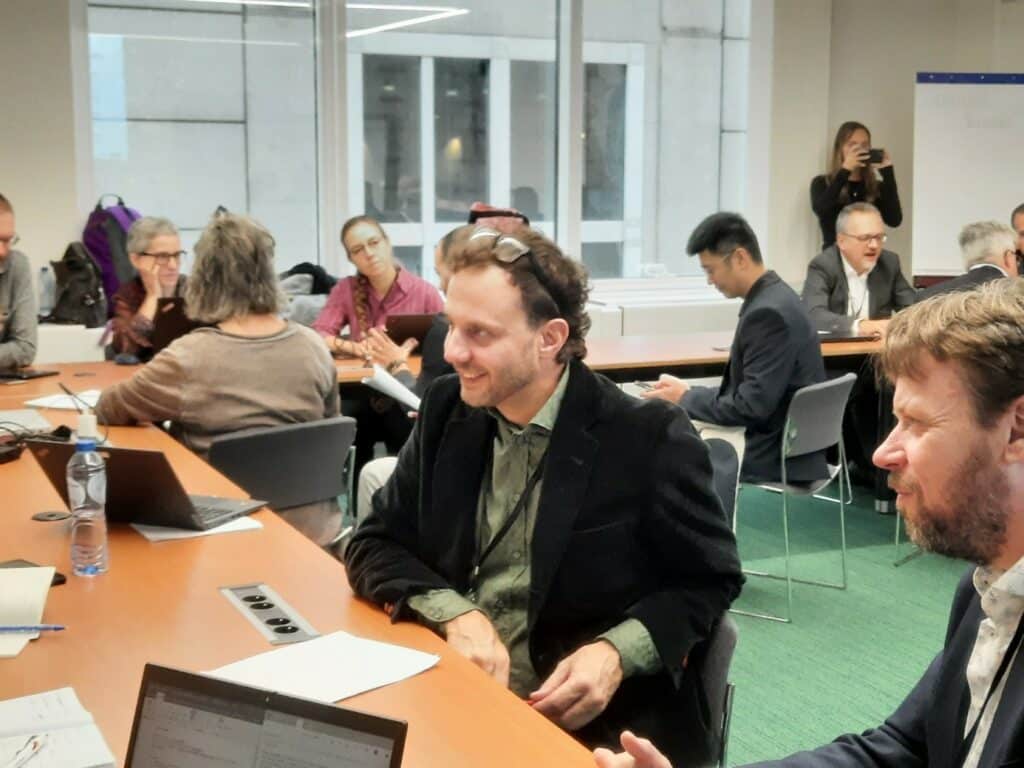Join JPI UE
Faq
FAQ
Please click here for the frequently asked questions we collected.
If you have an additional questions you are welcome to mail us at info@jpi-urbaneurope.eu
 On 5 October, DUT’s 15-minute City Transition Pathway organised a high-level session on one of the big questions in mobility policy: With continuously rising emissions in the transport sector, how can we connect the necessary urgency and decisiveness of action on the one hand, and inclusivity and high public acceptance for the transition on the other. The name of the session was “Speeding up mobility transitions. Balancing implementation efficiency and social acceptance”.
On 5 October, DUT’s 15-minute City Transition Pathway organised a high-level session on one of the big questions in mobility policy: With continuously rising emissions in the transport sector, how can we connect the necessary urgency and decisiveness of action on the one hand, and inclusivity and high public acceptance for the transition on the other. The name of the session was “Speeding up mobility transitions. Balancing implementation efficiency and social acceptance”.
For this discussion, we invited four speakers from different societal sectors and expertise to co-create an involving workshop: Yannick Cornet and Juliet Carpenter, researchers from Zilina University and University of Oxford, Tudor Drambarean, project manager in the municipality of Alba Iulia, and Patrick Mercier-Handisyde from DG R&I at the European Commission.
Central statements and outcomes of the discussion focused on the urgency for action and the need for resilience and sufficiency in mobility policy. However, mobility transition should not be discussed too narrowly looking on transport, but as embedded sector in bigger socio-economic issues and societal events. These are mostly not driven by transport measures, but have a massive effect on them (such as COVID-19 pandemic, digitalisation, war in Ukraine or (mobility effects) of inclusion of women in labour markets). Therefore, it is key to work for win-wins and co-benefits. An example is the possibility for city dwellers to be able to enjoy a good life locally in a sustainable neighbourhood. When talking about climate-neutral routines, we need to make such behaviour the easiest, cheapest and sexiest one. This could call for more incentives for sustainable behaviour (of disincentives for the contrary), similar to current support to e-cars. Finally, it is important to go step by step, build trust and partnerships and test and contextualise new solutions and approaches. When the opportunity arises, we need to take advantage of the right political momentum to bring about changes.
The workshop was concluded with a reflection on the possibilities to take up these issues in DUT, more specifically contributing to our strategies and activities, links to initiatives and stakeholders and on how to foster learning from and with others. We want to express our gratitude for the interesting discussion and inspiring inputs and look forward to taking these topics further together.”